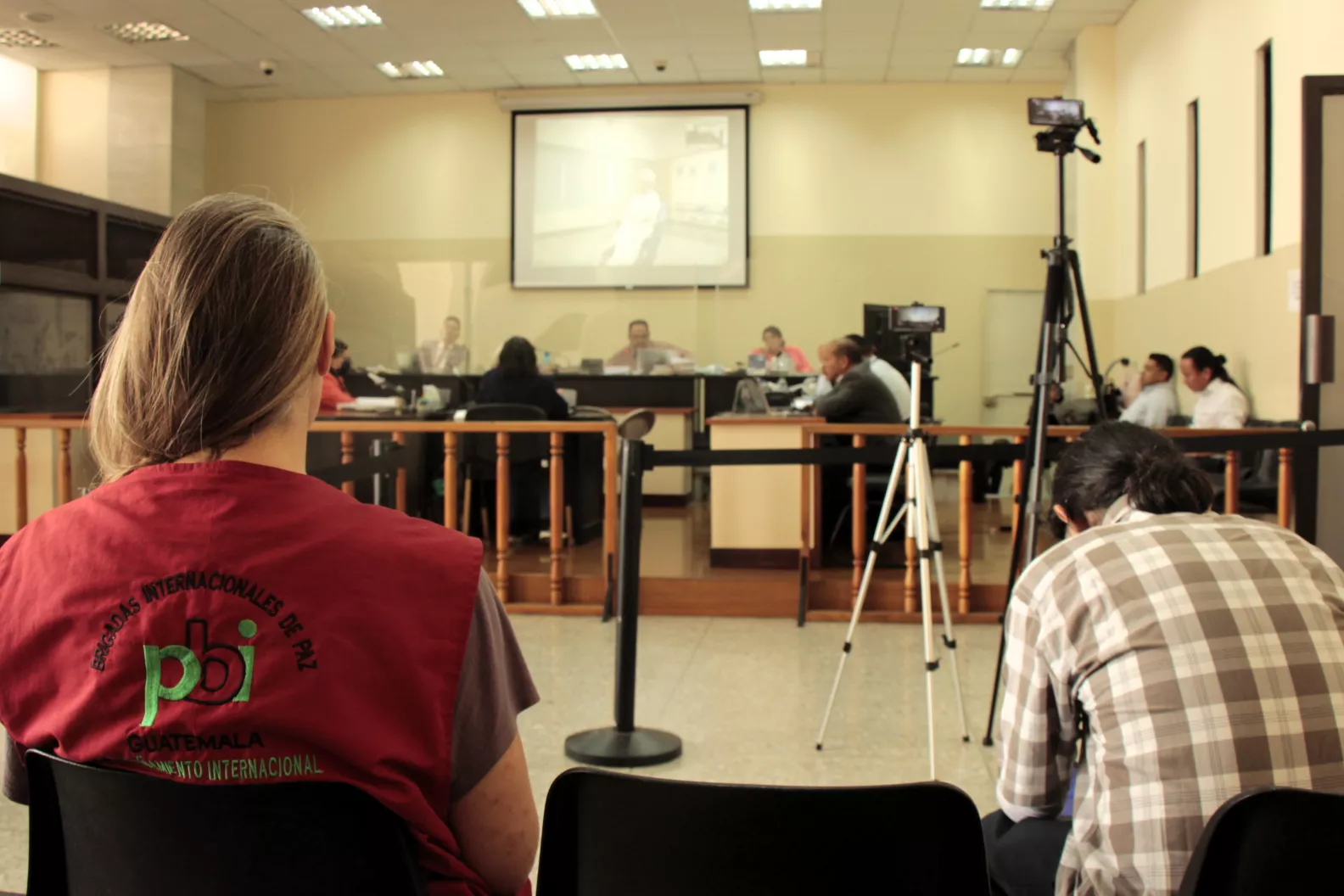
The Association for Justice and Reconciliation (AJR) is a coalition of survivors from 22 communities in five regions of the country – Ixil and Ixcán (Quiché), Huehuetenengo, Chimaltenango and Rabinal (Baja Verapaz) – who endured a scorched earth policy from 1978 to 1985. The organization was established in April 2000 to bring genocide charges against the military governments of Romeo Lucas García and Efraín Ríos Montt, in order to seek justice for the multiple human rights violations they suffered: massacres, murders, torture, rape, forced displacement, destruction of their livelihoods and way of life, etc.
On May 10, 2013, High Risk Court A delivered a verdict in the first Ixil Genocide trial, which took take place in the country, with the AJR acting as joint plaintiff. This sentence represented a milestone in the history of Guatemala and the world:1 the former de facto president José Efraín Ríos Montt (1982-1983) was found guilty as the person responsible for the genocide of the Ixil people committed by the Armed Forces under his command.2
The second genocide case
In October 2019, a new criminal case was opened, this time against four members of the military high command of Romeo Lucas García’s de facto government (1978-1982): Benedicto Lucas García, Manuel Antonio Callejas y Callejas, César Octavio Noguera Argueta, and Luis René Mendoza Palomo.
The four were accused of genocide, crimes against humanity and forced disappearances against the Maya Ixil people. At the trial, which finally began in April of this year, only Benedicto Lucas García was prosecuted, because Callejas was declared mentally incompetent and will have to face a special trial, while the latter two died.3 At the start of 2024, the AJR board asked PBI for accompaniment throughout the oral and public hearing phase.
Over the course of almost 100 hearings held in 2024,4 the Public Prosecutor’s Office (MP) and the plaintiff AJR, represented by lawyers from the Center for Human Rights Legal Action (CALDH) and the Human Rights Office of the Archbishop of Guatemala (ODHAG), presented 71 testimonies (including from 11 women survivors of sexual violence), 42 forensic expert reports, 13 expert reports from other disciplines, military and civilian documents from the relevant period and the Historical Clarification Commission (CEH) report, as well as international court rulings on crimes against humanity. In their statements and during the closing arguments, the MP’s Human Rights Prosecutor and the joint plaintiff presented the events that took place between August 1981 and March 1982 and demonstrated that crimes had been committed, requesting a sentence of “30 years for the crime of genocide, 30 years for crimes against humanity and 40 years for each forced disappearance, 70 proven cases, for a total of 2860 years.”
“The fear of a guilty verdict made them ask for favors from corrupt actors committed to preserving impunity”
However, on November 14, at the end of three days of closing arguments by defense counsel, provided by the Institute of Public Criminal Defense (IDPP), the defense informed the judge that they had been notified of an injunction granted to Lucas García, recusing the judges. Finally, on November 26, the First Appeals Court held a court date to hear from the parties and rule on the injunction. The president of the court, Miriam Regina Brolo, and judges Marco Tulio Pérez Lemus and Jorge Emilio Quezada Morales concluded that “the court showed partiality and bias in favor of the MP and the plaintiffs” and that another court should therefore be assigned to hear the case.
According to the plaintiffs’ attorney Jovita Tzul, the military official’s defense did not offer any evidence to prove the High Risk Court judges’ bias. Likewise, Nery Rodenas, director of ODHAG, which provides legal support to the AJR, stated that the judges’ decision is a “slap in the face” from the justice system to the victims who “have had to wait more than 40 years for a sentence.”
On December 10, the plaintiff AJR filed an appeal on this ruling.
1 For the first time ever, a head of state was tried and convicted of genocide in his own country.
2 Just 10 days after the sentence was handed down, a decision by the Constitutional Court ordered a retrial. This retrial began in January 2015 and ended in September 2018, again concluding that genocide had taken place. By then, defendant Ríos Montt had been dead for five months, and the second defendant, General José Mauricio Rodríguez Sánchez, former director of military intelligence, was acquitted once again.
3 Impunity Watch, Caso de genocidio contra el Pueblo Ixil durante la dictadura militar de Lucas García, Guatemala, 12 Mar 2020; Impunity Watch, El juicio contra Benedicto Lucas por el Genocidio del Pueblo Maya Ixil, Guatemala, Nov 2024.
4 All the hearings can be watched on the Asociación Verdad y Justicia Facebook page.
